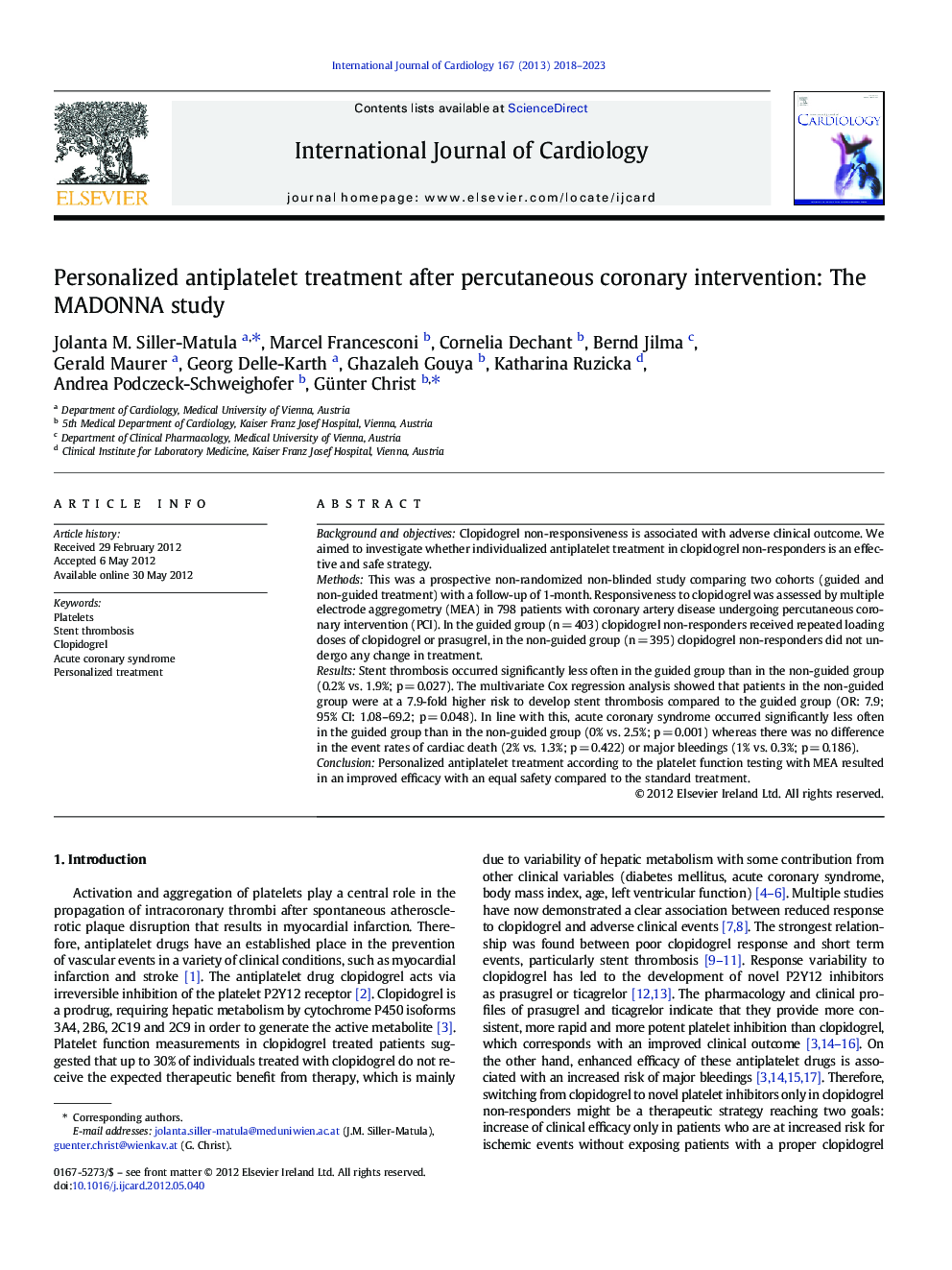| Article ID | Journal | Published Year | Pages | File Type |
|---|---|---|---|---|
| 5977204 | International Journal of Cardiology | 2018 | 6 Pages |
Background and objectivesClopidogrel non-responsiveness is associated with adverse clinical outcome. We aimed to investigate whether individualized antiplatelet treatment in clopidogrel non-responders is an effective and safe strategy.MethodsThis was a prospective non-randomized non-blinded study comparing two cohorts (guided and non-guided treatment) with a follow-up of 1-month. Responsiveness to clopidogrel was assessed by multiple electrode aggregometry (MEA) in 798 patients with coronary artery disease undergoing percutaneous coronary intervention (PCI). In the guided group (n = 403) clopidogrel non-responders received repeated loading doses of clopidogrel or prasugrel, in the non-guided group (n = 395) clopidogrel non-responders did not undergo any change in treatment.ResultsStent thrombosis occurred significantly less often in the guided group than in the non-guided group (0.2% vs. 1.9%; p = 0.027). The multivariate Cox regression analysis showed that patients in the non-guided group were at a 7.9-fold higher risk to develop stent thrombosis compared to the guided group (OR: 7.9; 95% CI: 1.08-69.2; p = 0.048). In line with this, acute coronary syndrome occurred significantly less often in the guided group than in the non-guided group (0% vs. 2.5%; p = 0.001) whereas there was no difference in the event rates of cardiac death (2% vs. 1.3%; p = 0.422) or major bleedings (1% vs. 0.3%; p = 0.186).ConclusionPersonalized antiplatelet treatment according to the platelet function testing with MEA resulted in an improved efficacy with an equal safety compared to the standard treatment.
